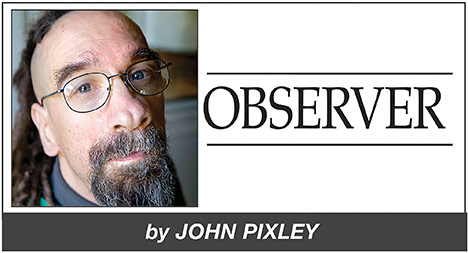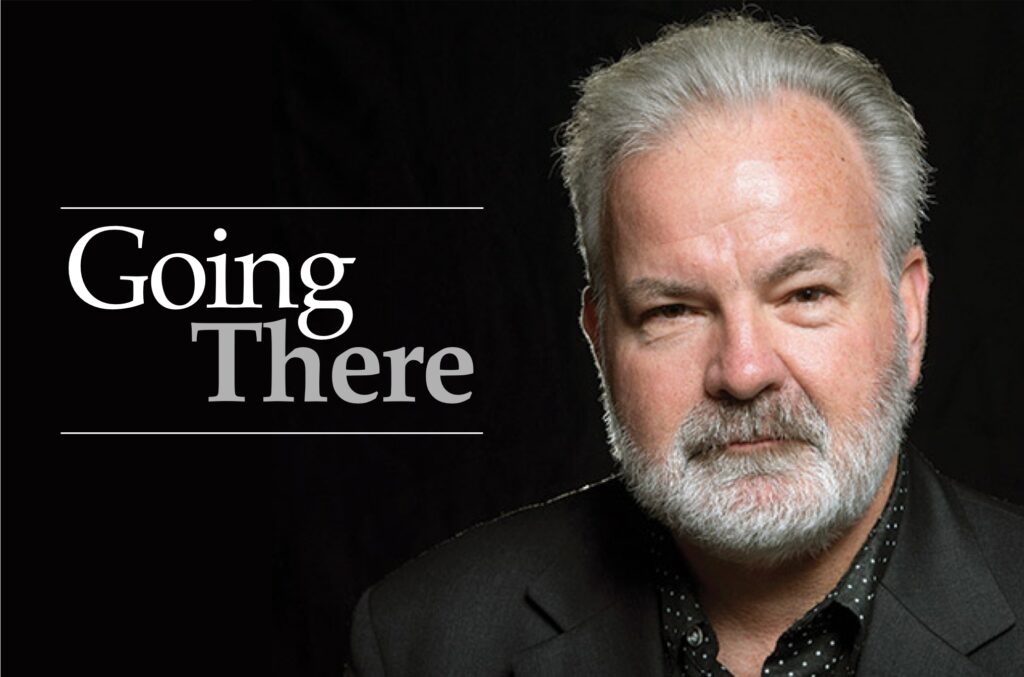Reader comments 4.5.13
Hard line at park is unjustified
Dear Editor:
On March 28, I was finishing my walk on the Claremont Wilderness Park trail. I arrived to the entrance at 7 p.m. I, along with many others, was stopped and ticketed by a Claremont police officer for leaving the park after 6:30 p.m., the posted time for park closure.
I actually hadn’t noticed the sign’s specific closure times, as I was checking out the new parking lot. Previously, I believe there were signs that indicated the park closed at “dusk” in the older parking lot.
I have been walking this trail for the decade I’ve been living in Claremont and had never seen a group of police officers lined up to “catch” hikers. I never take a car to the park. I do not walk in the hills in the dark. I was actually hurrying home to avoid being up there in the dark.
After being written up for the $50 ticket, I did examine the newly posted sign closely. On April 1, the park closure time changes to 7:30 p.m. I find it particularly irritating that I was issued a ticket 3 days prior to the closure time changing by an hour.
Certainly, the ticketing had nothing to do with maintaining my safety or the safety of others. The officers were not friendly. This was not about getting hikers to pay attention to the signs. It was simply a way to “enforce” the new rules and collect money. Dozens of tickets were stuffed under their windshields and their badges.
I don’t understand the need to take such a hard line in the opening days of the park’s new rules and parking facility. I object to the size of the fine and to the inflexible and arbitrary way that Claremont is approaching this issue.
Lisa Ponce
Claremont
Goodbye, Claremont
Dear Editor:
On the afternoon of March 27, I decided to go hiking at the Claremont Wilderness Trail at the top of Mills Avenue. I had not been there for a couple of years and had noticed how beautiful it looked. I also noticed a sign stating that beginning in April, parking permits would have to be obtained to park in the lots.
Soon after entering the park, I came upon a 2-foot rattlesnake in the middle of the trail. One female jogger had her headphones on as she stepped no more than a foot away from it. I called her attention to the situation and she responded with a “thank you” and began taking pictures of it with her cell phone. I took it upon myself to stay there and caution hikers and joggers of the situation.
Several people wanted to kill the rattler, while others would have been oblivious of its presence. After about 20 minutes, the snake slithered back into the brush.
Although I was behind in my 5-mile hike/run, I felt good about possibly preventing someone from receiving a snake bite.
When I finished my workout and approached the exit gate, I noticed 50 or more people standing there unable to exit. I looked at my watch and noticed the time was 6:40 p.m. The Claremont police were not allowing anyone to leave until they received a $50 “parking violation” ticket.
I was outraged at this and watched as more hikers came down from the hills and got into line. I stayed out of line and spoke to many of the people. I was not alone in the feeling that the park had always been open until dusk. It certainly was not dusk at 6:40 p.m.
The Claremont police officers were quick to point out a new sign that read “Park closes at 6:30 p.m.” I did not see the sign on my way in and since I had not been there in over a year, I was still under the impression that it closed at dusk.
I now must re-evaluate my act of “humanity,” playing the guardian role to both the rattlesnake and the public. Had it not been for my 20 minutes of being a “Good Samaritan,” I would have been out of the park, completely unaware of the situation.
I regret breaking my bond with Claremont. I will miss my visits to the Village, but cannot and will not spent another dime in a city where this type of robbery takes place.
Benjamin W. Boetel
Ontario
Getting a kick out of Lex
Dear Editor:
I always look forward to reading Lex in the City by Mellissa Martinez and this week (“Kiss this guy!”) was no exception. I not only learned a new word (mondegreen) but got a real kick out of the article’s examples of misheard lyrics.
My family’s favorite mondegreen, and quite a classic, is “there’s a bathroom on the right” (actually “there’s a bad moon on the rise” from CCR’s “Bad Moon Rising”). Great stuff!
Many thanks to Ms. Martinez and the COURIER. Cheerfully yours,
John Eichinger
Claremont
Water matters
Dear Editor:
In the March 15 COURIER, Tobias Hecht asked “What else could we do with $54 million?” (the appraised value of Claremont’s water system): free day care, hospice service, improve support for teachers…
If we had that choice I, too, would be wary of buying the Claremont water system—but we don’t. The money is not available for such things. It is the money now profiting Golden State Water Company, about $8 million per year, that we could save and use to buy the system. How do we do that?
The estimated annual saving if we owned our water system as neighboring cities do is about $8 million. That money could be used to purchase 30-year revenue bonds, paid for entirely by water users, worth at least $150 million. There would be no need to raise taxes, or take money from Claremont’s general fund, or raise water rates (unless the system costs more than that $150 million).
In coming years we, not Golden State Water Company, would set Claremont’s water rates. That’s the way to keep millions in savings in the community for other needs. Best of all, we will control our own water future.
Water does matter. Control of this vital resource will determine our future in critical ways. Let’s have a reasoned weekly discussion of water issues in the COURIER. I’m not a water expert, but I have followed water issues in Claremont since Marilee Scaff and I were principle authors of “Water Issues in the City of Claremont 2005” (posted at www.claremont.ca. lwvnet.org). Lets have that discussion. Together we can get it right!
Freeman Allen
Claremont
City council’s gun resolution
Dear Editor:
At their March 12 meeting, the Claremont City Council debated a resolution for (1) our mayor to officially join New York City Mayor Michael Bloomberg’s group Mayors Against Illegal Guns (MAIG), and (2) to endorse Sen. Dianne Feinstein’s “assault weapons” ban legislation.
As it happens, however, other interesting information has come to light.
While launching their Gun Owners Against Illegal Mayors project, Alan Gottlieb, founder of the Second Amendment Foundation (SAF) had this to say about MAIG, and its founder Mr. Bloomberg, “Michael Bloomberg created [MAIG] to further his personal agenda of public disarmament. But, within the [mayoral] ranks of his organization, our research has found several politicians who have been convicted of various serious crimes, thus making it impossible for them to finish their terms.”
The SAF found MAIG mayors that have been convicted of all sorts of crimes, including perjury, embezzlement, attempted child molestation, assault, racketeering, assaulting a police officer, bribery, fraud, money laundering and domestic violence charges, while others have engaged in tax evasion, extortion, child pornography and trademark counterfeiting.
In short, as a result of their convictions, many of these elitist MAIG mayors are now prohibited from owning firearms themselves. The crimes they were convicted of suggest they are public enemies, rather than the public servants they promote themselves as. Perhaps Mr. Bloomberg should worry about background checks on his MAIG colleagues, rather than on law-abiding gun owners.
The SAF continued, “[Our] research discovered a far higher rate of criminal activity within the ranks of the Mayors Against Illegal Guns than among the ranks of more than 8 million [American] citizens who are licensed to carry concealed firearms in 49 states.”
What’s truly puzzling, is that our city council would even consider associating itself with such an unsavory group of criminals, in the form of MAIG.
It is also astonishing, that our city council would accept for consideration such a Constitution-hostile resolution, which would presume to speak for all of Claremont on a national issue, an issue over which the city council has no jurisdiction.
Even the timing is troubling. At this moment—when we’re looking at a possible water company purchase, and need to be united as a community—some people have chosen to push this highly divisive wedge issue.
Douglas Lyon
Claremont
Fixing the filibuster problem
Dear Editor:
Please write to your US Senators to ask them to work with their colleagues to reform the filibuster rules. We believe this can and should be accomplished through consensus—a consensus that will preserve the underlying values of the current rules but will end the abuses of recent decades
The Senate’s tradition of full debate on critical and complex national issues is important for our democracy. Quick and unconsidered action is often a mistake. At the same time, particular rules that have the effect of tying the Senate in procedural knots or that block the Senate from debating a particular bill or subject, are not consistent with this tradition and undermine the basic tenets of representative government.
While it may be possible for a simple majority to change the rules of the Senate at the beginning of a congressional session, the prospect of biennial rules changes on partisan votes would fundamentally change the role of the Senate. A better alternative would be for both parties to agree on essential reforms and adopt them using current procedures.
It is unacceptable in a democracy to continue the Senate’s recent practices, which allow a small minority of absent Senators to block consideration of a bill or nomination and to obstruct and delay action after cloture is invoked.
Over the years, senators of both major political parties have taken different positions on cloture and filibuster procedures, often reflecting their partisan stands on the underlying issues. The League of Women Voters asks you to urge your senators to recognize that they will sometimes be in the majority and sometimes in the minority. The Senate rules should ensure fair procedures for both.
At its best, the Senate is unique in its ability to reconcile conflicting national interests and priorities through full and open debate that respects the contribution of each Senator. At its worst, the Senate wastes incredible amounts of time doing nothing, allows Senators to indulge their individual whims, and reinforces partisan rancor.
It is time to rise above partisanship and reform the Senate rules in ways that maintain the best traditions, while ensuring openness, accountability, decision-making capability and effective performance.
Ellen Taylor
VP, Advocacy
LWV of the Claremont Area









0 Comments